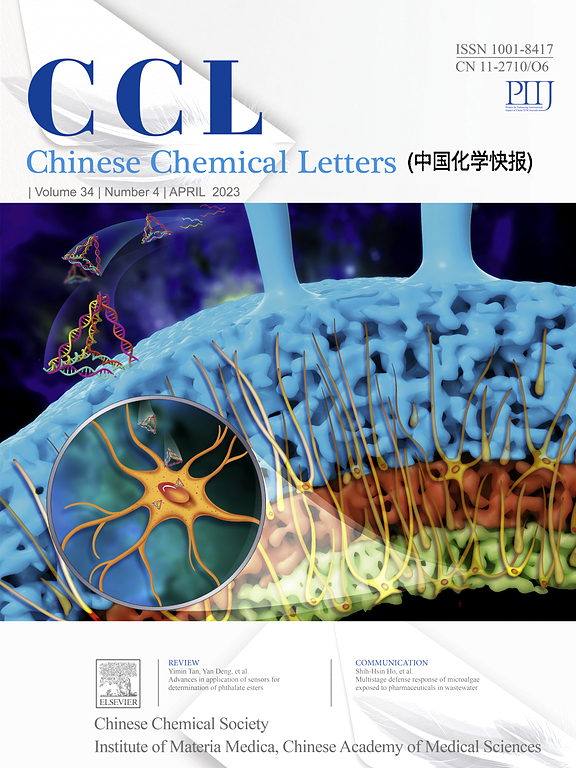Preparing sub-monolayer metals with continuous coverage spread for high-throughput growth of metal-organic frameworks
IF 9.4
1区 化学
Q1 CHEMISTRY, MULTIDISCIPLINARY
引用次数: 0
Abstract
Surface-confined metal-organic frameworks have emerged as versatile structures with a broad spectrum of applications such as nanoelectronics, catalysis, sensing, and molecular storage, owing to their unique structural and electronic properties. However, the exploration and optimization of molecular networks typically involve resource-intensive trial-and-error experiments. The complexity comes from factors like metal nodes, organic ligands, substrates, and the preparation conditions. To address this challenge, high-throughput methodologies have been used in materials exploration. In this work, we explored a high-throughput method for preparing sub-monolayer metals with continuous coverage spread on metal surfaces. By employing a physical mask during metal deposition under ultra-high vacuum conditions, we achieved sample libraries with copper (Cu) and silver (Ag) adatoms on the metal substrates, and constructed surface-supported metal-organic frameworks with varying metal-to-molecule stoichiometric ratios. This approach facilitates the exploration of surface-confined metal-organic frameworks, particularly in terms of varying metal-to-ligand stoichiometric ratios, offering an efficient pathway to unlock the potential of these intricate two-dimensional networks.
求助全文
约1分钟内获得全文
求助全文
来源期刊

Chinese Chemical Letters
化学-化学综合
CiteScore
14.10
自引率
15.40%
发文量
8969
审稿时长
1.6 months
期刊介绍:
Chinese Chemical Letters (CCL) (ISSN 1001-8417) was founded in July 1990. The journal publishes preliminary accounts in the whole field of chemistry, including inorganic chemistry, organic chemistry, analytical chemistry, physical chemistry, polymer chemistry, applied chemistry, etc.Chinese Chemical Letters does not accept articles previously published or scheduled to be published. To verify originality, your article may be checked by the originality detection service CrossCheck.
 求助内容:
求助内容: 应助结果提醒方式:
应助结果提醒方式:


